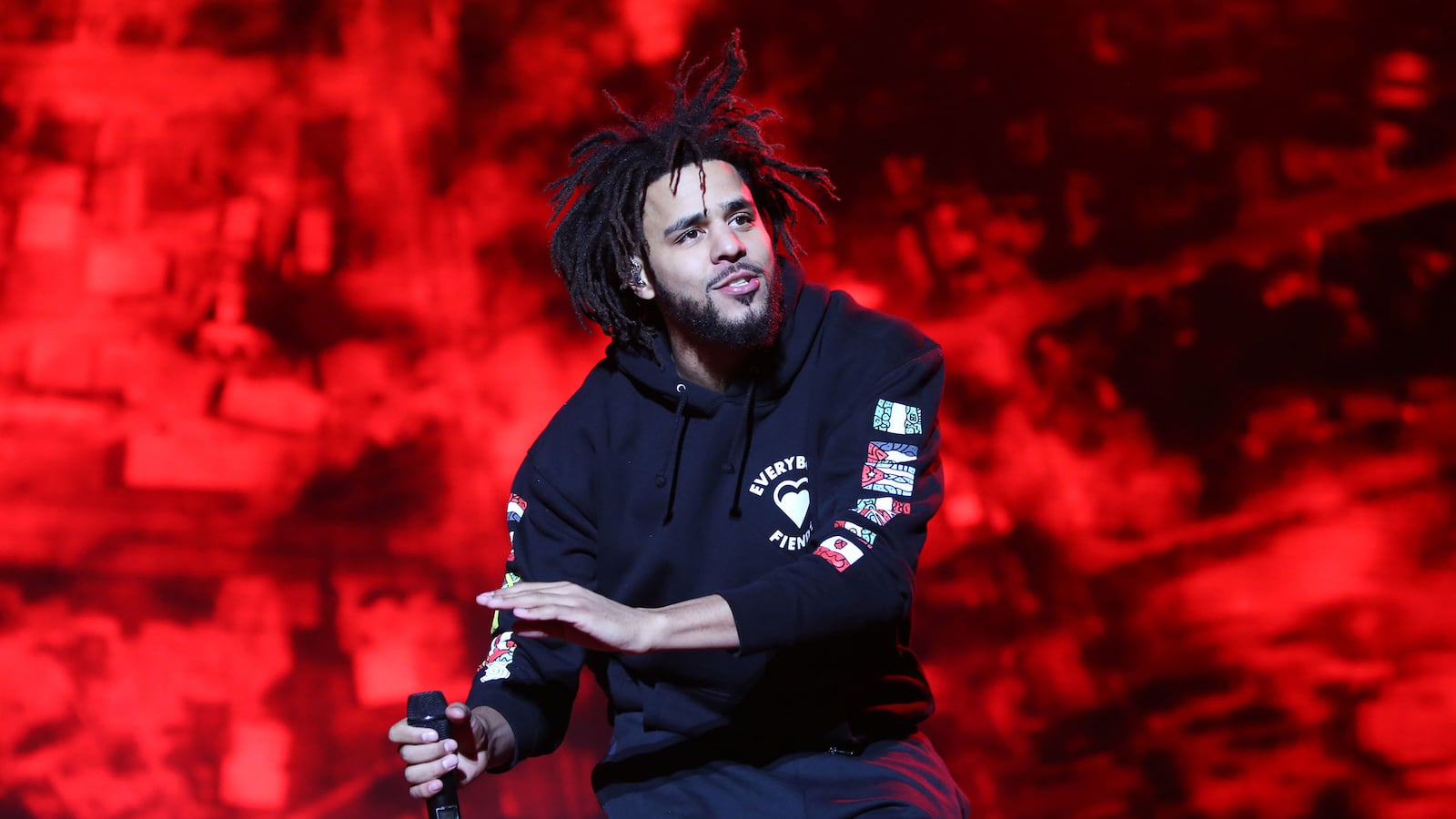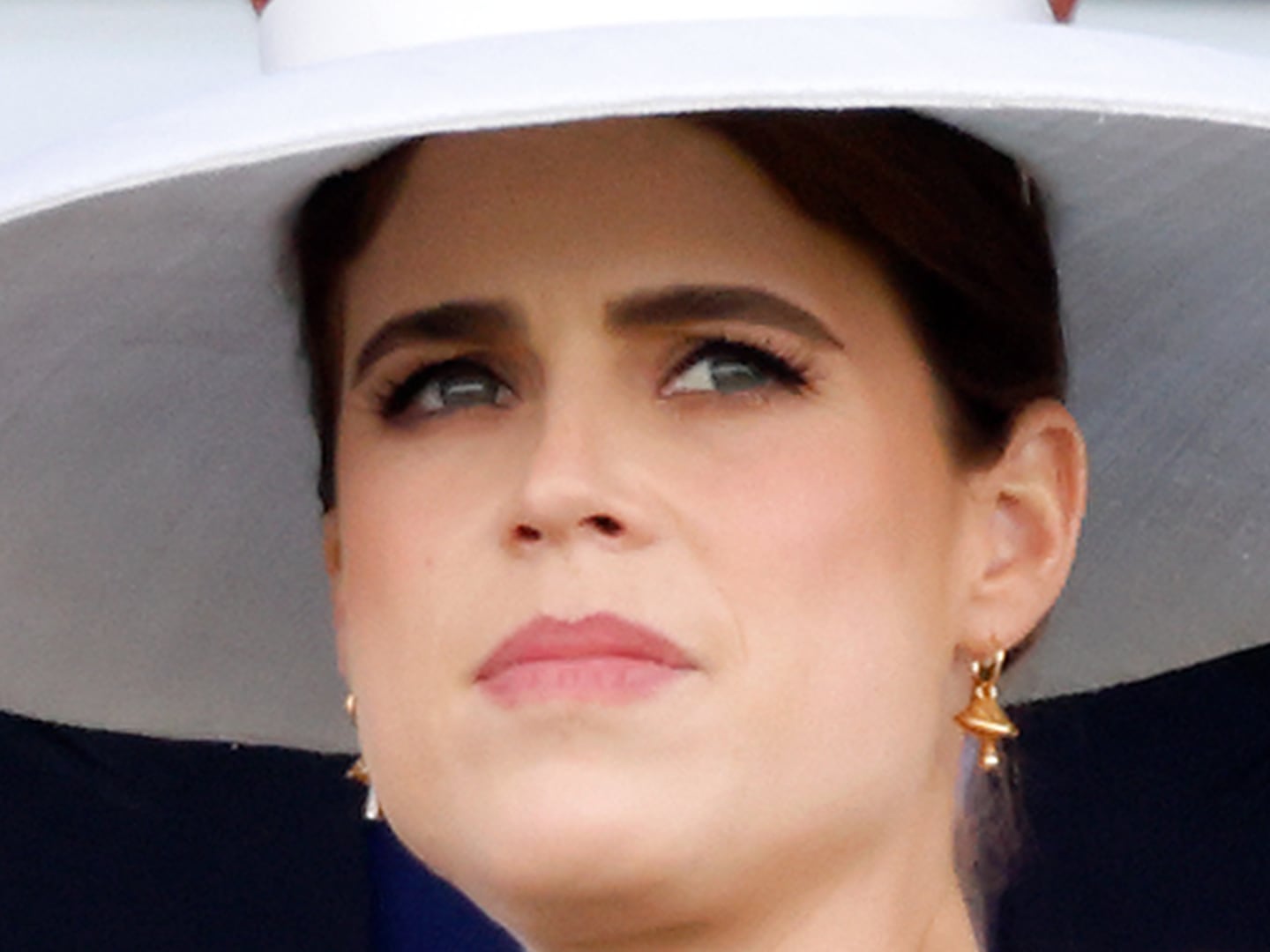For years now, J. Cole has presented himself as hip-hop’s pensive everyman. The thoughtful rhymer from North Carolina showcased a sincerity that even at it’s most awkward (“Let Nas Down”) was endearing to fans in a way that separated him from his contemporaries. 2014 Forest Hill Drive seemed to announce Cole as a major force in the rap game, a critically acclaimed project that made good on the promise of his earlier work. Exactly two years later, he returns with 4 Your Eyez Only, a stone-faced look at life and love through the eyes of a man who has a family—on top of all that angst he’s been carrying since the very beginning.
4 Your Eyez Only was preceded by two singles: the somber “Everybody Dies” and the controversy-baiting “False Prophets,” a pointed message track that included a verse that sounded like a not-so-thinly-veiled jab at embattled superstar Kanye West.
“False Prophets” may have sent social media into a frenzy, but Cole was wise to leave the track off of 4 Your Eyez Only. This is a highly personal album, and that track would’ve overshadowed the reflective tone present throughout much of it. But it also reveals that there isn’t anything quite as incendiary here. Cole didn’t need the shock value of “False Prophets,” but he did need something of a shakeup to provide a jolt of energy to what is a mostly melancholy affair.
“I see the rain pouring down before my very eyes…should come as no surprise,” he croons on the album opener “For Whom the Bell Tolls.” It’s a drearily evocative track, with distorted horns punctuating Cole’s raspy vocals throughout, as he sings “ain’t nowhere to hide” and “tired of feeling low, even when I’m high.” It segues into the percussive “Immortal,” where Cole ponders the validity of how “real niggas don’t die,” reflecting on the machismo of young Black men trapped in the struggle as a parallel to being an ambitious rapper: “To die a young legend or live a long life unfulfilled. Because you wanna change the world—but while alive, you never will.”
“Déjà Vu,” which samples a beat from Bryson Tiller’s “Exchange,” feels almost musically identical to “Immortal,” despite Cole’s focus remaining squarely on a beautiful woman in the club. “What you in the club lookin’ like you out ya zone. I be discreet and pull out ya phone and put my number it.” In J. Cole’s world, even a night at the club is grounds for introspection—for him and the object of his affection.
Cole sing-raps on the brief “Ville Mentality,” another rumination on life and the meaning one can wring from it. That’s followed by the piano-driven “She’s Mine Pt. 1,” a celebration of Cole’s newfound domesticity with the love of his life. These tend to be the most revelatory moments on 4 Your Eyez, as Cole interrupts his somber cooing with a verse acknowledging his insecurities: “You read me like I’m a book. I’m the bible and you the reverend. I wanna tell the truth to ya and talk about the days of my youth to ya.”
On the upbeat “Change,” Cole somehow finds a sliver of optimism—even if it’s couched in mortality. “I’m growing and getting stronger with every breath / Bringing me closer to heaven’s doors with every step / As we speak I’m in peace, no longer scared to die / Most niggas don’t believe in God and so they terrified.” Proclaiming that “the only real change comes from inside,” Cole sounds at peace with the fact that he is in control of his own destiny. It’s a much-needed reprieve from the relatively downbeat rest of the album, but things slow down again for the topical “Neighbors,” on which Cole recalls the racism that he still faces even as he’s become a famous rapper. Buying a new home in a secluded neighborhood, Cole tells the story of his neighbors who “think I’m selling dope,” because the only Black people they’ve ever seen are “on the news in chains.” Cole raps about being “Black in a white man territory” even “when the president bang ya tape.” It’s a standout on the album and another example of how effective Cole’s commentary can be.
But the best moment on 4 Your Eyez Only is the stellar “Foldin’ Clothes”—another ode to domesticity that has Cole sounding like the most happily married man in hip-hop. Rapping about Netflix and almond milk, the 31-year-old brags about wanting to make his woman feel good and do the right thing. Cole married long-time girlfriend Melissa Heholt about a year ago, and he sounds like a man with renewed purpose because of his wife. “I see a lot on your plate, nine months with that weight / I know you tired so I wonder how I can help / I get the basket and grab your clothes out the dryer.”

Cole’s reflections as a man with a wife and child define the latter half of the album, as “Foldin’ Clothes” leads into the second half of “She’s Mine,” with Cole quietly rapping about changing diapers and watching his daughter being born. “I ain’t never did nothin’ this right in my whole life,” he muses, with the soft sound of a baby crying in the background.
On the album-closing title track, he reflects on fatherhood again—while also interweaving his own dad’s history into a thoughtful look at what his family means for him and his child, writing from the perspective of a failed, deceased man apologizing to his adult daughter:
“You probably grown now so this song’ll hit you If you’re hearing this, unfortunately Means that I’m no longer with you in the physical Not even sure if I believe in God but because you still alive He got me praying that the spiritual is real So I can be a part of you still, my pops was killed too So I know how part of you feels Maybe you hate me, maybe you miss me, maybe you spite me Life goes in cycles, maybe you’ll date a nigga just like me.”
Cole is no longer the upstart underdog looking to make good; he’s one of hip-hop’s best and brightest, sitting at the forefront of the genre alongside mainstays Drake and Kendrick Lamar as one of the most impactful and influential artists in the culture. On 4 Your Eyez Only, Cole attempts to build on the personalized storytelling he showcased so masterfully on 2014 Forest Hills Drive The results are solid—but not exactly spectacular.
Cole’s propensity for introspection earns eye-rolls from many, but he’s been able to present his navel-gazing in a way that suggests a mature self-awareness, as opposed to the self-victimized stance so many rappers take whenever their subject matter looks inward. He’s wrestling with a lot, as always, and this time around it’s not just the current state of Black America that informs his angst; it’s his own status as a rap star who is now a husband and father. But his focus is so singular that it makes 4 Your Eyez Only sometimes impenetrable where it should resonate. As such, it stands as a good album, just not as good as his last and probably not up there with the best of 2016. This year has been so full of “great” that “good” feels like a backhanded compliment, but kudos to Cole for making an album that celebrates who he is right now. It doesn’t feel at all pretentious, and it’s about as honest as any rapper has been. Cole, and his fans, should be happy for that.






